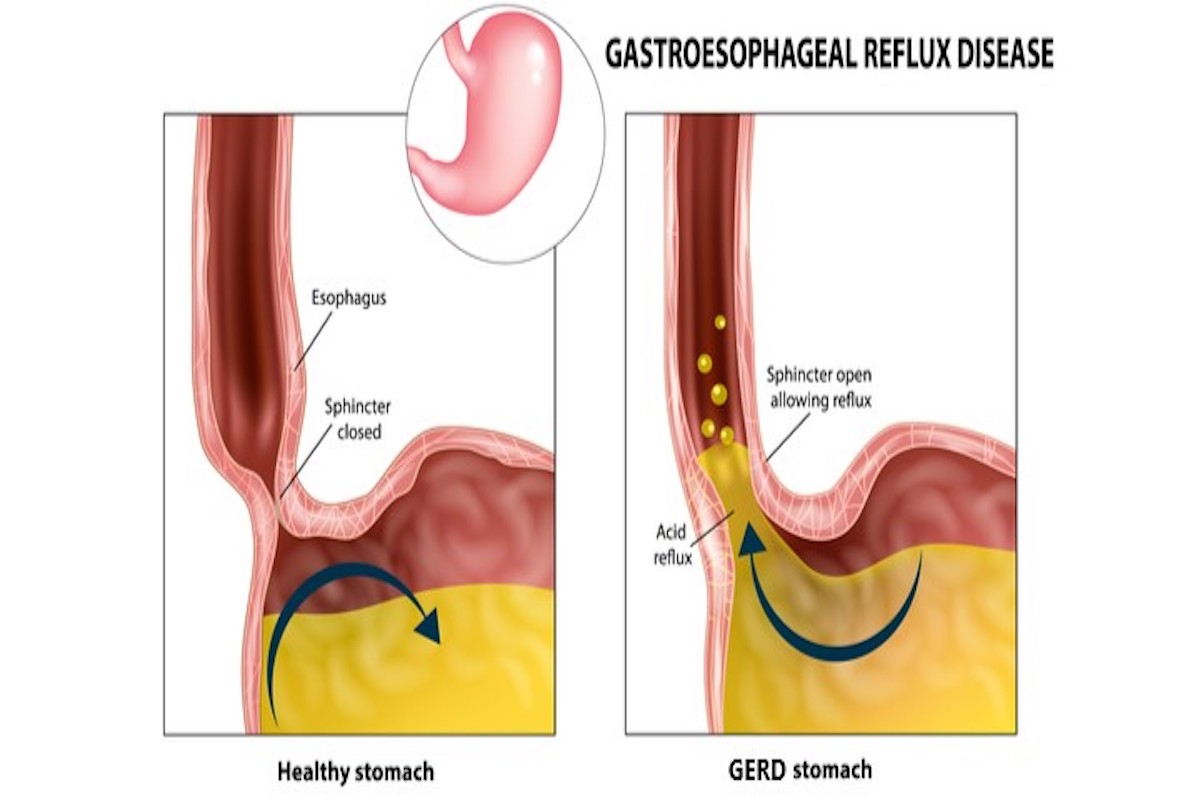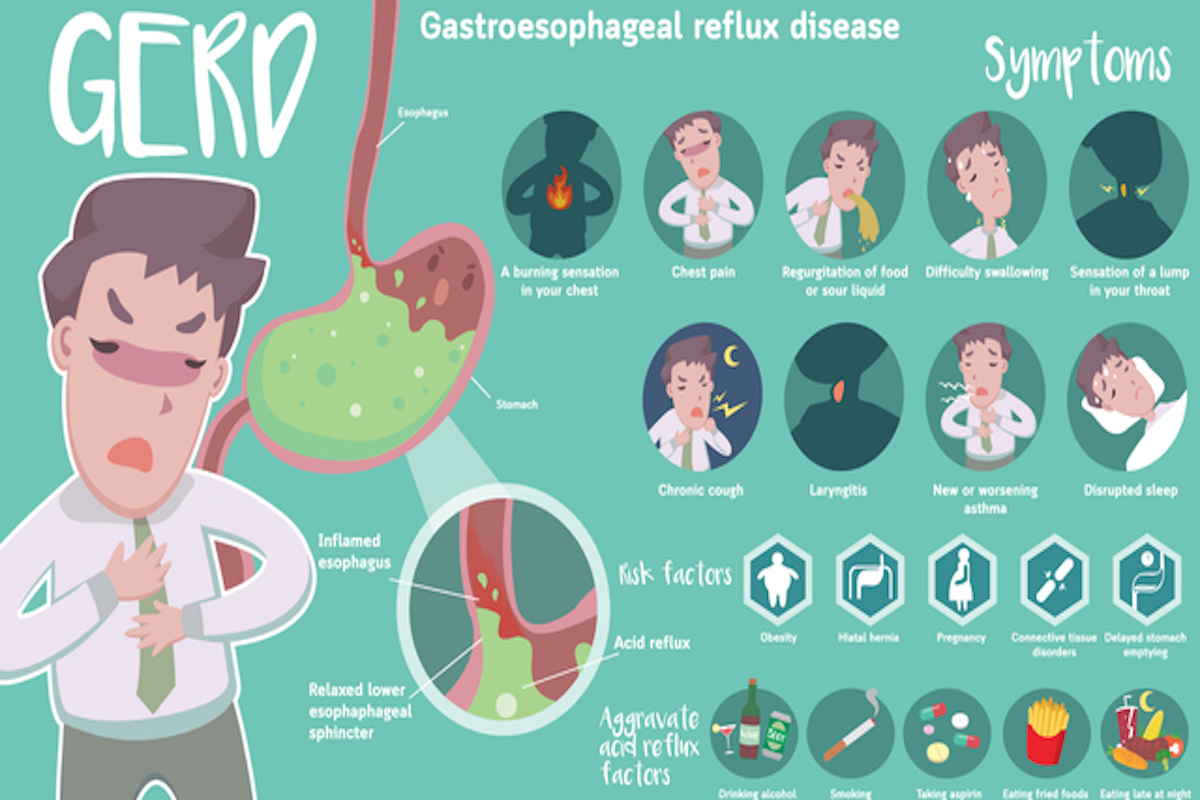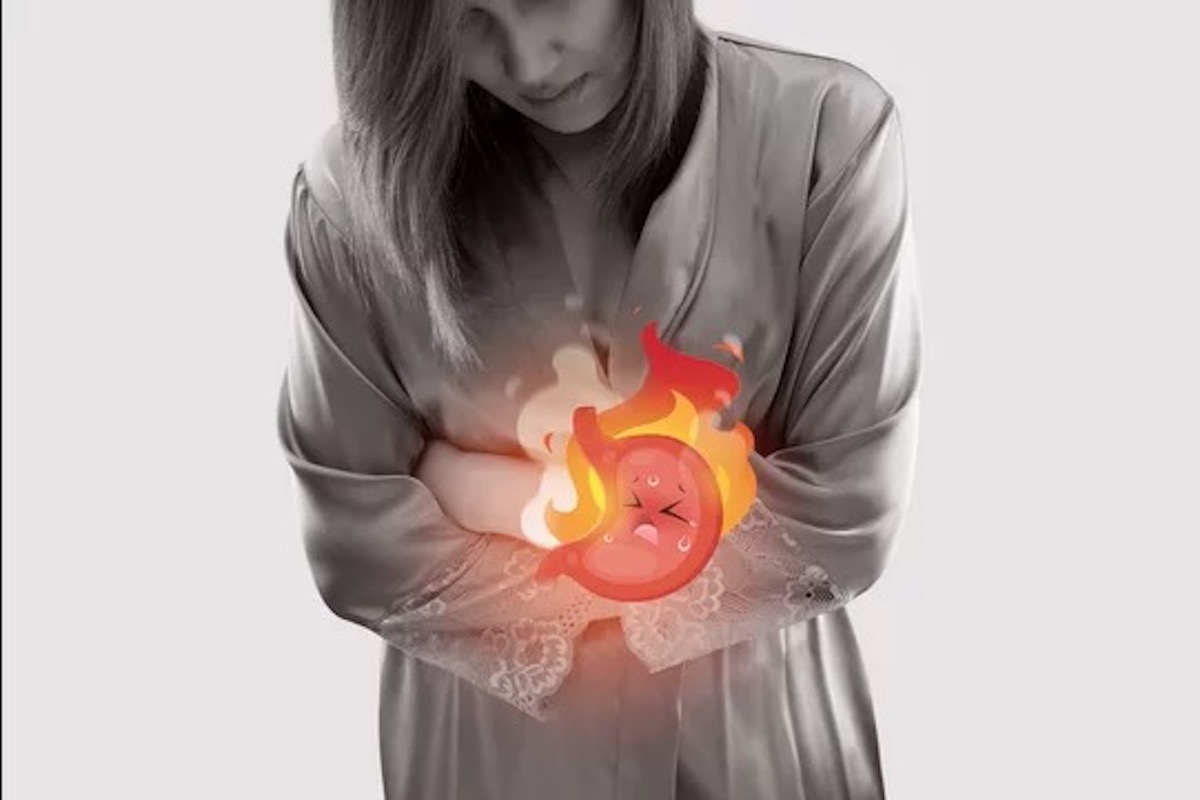Gastroesophageal reflux disease, also called GERD is a common medical condition affecting millions of Americans. It occurs when stomach acid flows back into the esophagus, causing discomfort and other unpleasant symptoms. Many people – about 20% – in the United States suffer from GERD, which can affect their daily lives and quality of life. We all suffer from acid reflux from time to time. However, not many people know they have GERD, as they often dismiss it as heartburn. That’s why it’s important to know what GERD entails and what you should do if you suspect you’re suffering from it.

What Is GERD?
GERD (gastroesophageal reflux disease) is a chronic digestive disorder caused by the abnormal reflux of stomach acid into the esophagus. People also refer to it as, chronic acid reflux. This occurs due to a weakened lower esophageal sphincter (LES), a ring of muscle at the bottom of the esophagus that normally prevents the backflow of stomach contents. Over time, the acid irritates the lining of the esophagus, which can lead to inflammation and damage. It is a common condition, and if left untreated, it can lead to serious complications.
GERD vs. Acid Reflux vs. Heartburn
GERD, heartburn, and acid reflux are related conditions, but they are not exactly the same thing. Both heartburn and acid reflux are symptoms of GERD, but they’re not the same. Acid reflux occurs when stomach acid flows back into the esophagus, causing a burning sensation in the chest and throat, which is known as heartburn. Gastroesophageal reflux disease is a chronic condition in which acid reflux occurs more frequently and severely, leading to damage to the lining of the esophagus. In summary, acid reflux is the backward flow of stomach acid into the esophagus, heartburn is the burning sensation caused by acid reflux, and GERD is a chronic disease caused by frequent and severe acid reflux.
Before we tell you, how you can recognize you’re suffering from GERD instead of heartburn or acid reflux, it’s vital to know what increases someone’s chances of getting it. There are several factors that increase the risks. One of the most common risk factors is obesity, which puts extra pressure on the stomach and can weaken the LES, making it easier for stomach acid to flow back into the esophagus. Smoking is another risk factor, as it can weaken the LES and also increase stomach acid production.

Pregnant women are also at a higher risk of developing GERD, as the growing fetus can put pressure on the stomach and LES. Certain medications such as calcium channel blockers, antihistamines, and antidepressants can also relax the LES and increase the risk of chronic acid reflux. Additionally, certain lifestyle habits such as eating large meals, lying down immediately after eating, and consuming trigger foods and drinks
Symptoms of GERD
Gastroesophageal reflux disease can cause a variety of symptoms, which can range from mild to severe, that can affect someone’s daily life. One of the most common symptoms of GERD is heartburn, which is a burning sensation that occurs in the chest and throat. This symptom can be mild or severe and may occur after eating, lying down, or bending over. Other common symptoms include:
- Regurgitation
- Difficulty swallowing
- Chest pain
- Chronic cough
- Hoarseness or sore throat
As you can read is chest pain a symptom. This pain is often mistaken for a heart attack, but in combination with the above-mentioned symptoms, it’s more likely you’re suffering from acid reflux or GERD. If the chest pain continues, and you’re also experiencing shortness of breath or dizziness; go to the nearest emergency room immediately – you might have a heart attack! Check out more heart attack symptoms, in our article: Heart Attack: Causes & How to Recognize It.
If left untreated, GERD can lead to serious complications such as inflammation of the esophagus, bleeding, ulcers, and scarring. Or even serious lung problems, like bronchitis, asthma or pneumonia. These complications can cause difficulty swallowing, chronic pain, and even increase the risk of developing esophageal cancer.

Diagnosis of GERD
It is important to seek medical attention if you suffer from symptoms of GERD to prevent these complications and manage the condition properly. First, you need to contact your professional healthcare provider. As GERD is typically diagnosed based on symptoms. If your healthcare provider suspects that a patient has GERD, they may recommend further testing, such as an endoscopy, pH monitoring, or an X-ray.
Treatment Options
After the getting the diagnosis GERD, the right treatment plan is set up by your healthcare provider. Treatment options for gastroesophageal reflux disease are:
- Lifestyle changes
- Medications, like proton pump inhibitors (PPIs) and prokinetics
- Surgery for strengthening the LES or creating a new valve to prevent acid reflux
Surgery is only prescribed for severe GERD cases. In case the diagnosis is (only) acid reflux, treatment options include:
- Lifestyle changes
- Over-the-counter medications, like antacids and H2 blockers
- Prescription medications, like proton pump inhibitors (PPIs) and prokinetics
Is It Preventable?
Unfortunately, there is no cure nor way to (always) prevent gastroesophageal reflux disease. There are a few things you can keep in mind to reduce your risk of developing the condition, including:
- Maintain a healthy weight
- Avoid trigger foods and drinks
- Eat smaller meals
- Don’t lie down immediately after eating
- Quit smoking
- Elevate the head of your bed
Keep in mind that there is always help and support available for people suffering from gastroesophageal reflux disease and acid reflux. For more information about GERD, acid reflux, and which foods you can and cannot eat continue your online search here:

